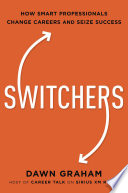

The first key idea in 'Switchers' revolves around understanding the mindset of switchers—those individuals who frequently change jobs or careers. The author emphasizes that switchers are not just job hoppers; they possess a unique set of motivations, including the desire for growth, new challenges, and a better work-life balance. By recognizing these motivations, organizations can better attract and retain switchers, ultimately benefiting from their diverse experiences and fresh perspectives. This understanding also helps switchers themselves to navigate their career transitions more effectively, aligning their values and desires with their professional choices.
Continue readingIn today's competitive job market, personal branding has become increasingly crucial for switchers. The book discusses how individuals can build and communicate their personal brand effectively. This includes identifying unique skills, values, and experiences that set them apart from others. By cultivating a strong personal brand, switchers can enhance their visibility and attractiveness to potential employers. The author provides practical strategies for creating a compelling online presence, leveraging social media, and networking to establish credibility and authority in their chosen fields.
Continue readingOne of the significant insights from 'Switchers' is the importance of recognizing and leveraging transferable skills. Switchers often come from diverse backgrounds, and their skills can apply across various industries and roles. The book encourages individuals to identify these skills and articulate them effectively when pursuing new opportunities. This not only boosts confidence but also enables switchers to position themselves as valuable assets to potential employers, regardless of their previous job titles or industries.
Continue readingNetworking is a vital component of career success for switchers. The author highlights the significance of building and maintaining professional relationships throughout one’s career. The book offers actionable tips on how to network effectively, including attending industry events, engaging on social media platforms, and reaching out to former colleagues. By fostering a robust professional network, switchers can gain access to job opportunities, mentorship, and valuable insights that can guide their career transitions.
Continue readingThe fast-paced nature of today’s job market necessitates a commitment to continuous learning, especially for switchers. The book emphasizes the importance of staying updated with industry trends, acquiring new skills, and seeking out educational opportunities. This proactive approach not only enhances employability but also demonstrates adaptability and a willingness to grow—qualities that are highly valued by employers. The author provides resources and strategies for incorporating lifelong learning into one’s career development plan.
Continue readingSwitchers often face unique challenges during career transitions. The book discusses various strategies for successfully navigating these changes, including setting clear goals, conducting thorough research on potential industries, and seeking guidance from mentors. The author emphasizes the importance of self-reflection to understand one’s motivations and aspirations better. By approaching career transitions with a strategic mindset, switchers can minimize uncertainty and increase the likelihood of a successful transition.
Continue readingFinally, 'Switchers' addresses the role of organizational culture in supporting switchers. The author argues that companies should foster an environment that encourages exploration, flexibility, and innovation. By creating a culture that values diverse experiences and perspectives, organizations can attract and retain switchers who contribute to a dynamic and adaptive workforce. The book provides examples of companies that have successfully implemented such cultures and the positive impact it has had on their talent acquisition and retention.
Continue readingThe reading time for Switchers depends on the reader's pace. However, this concise book summary covers the 7 key ideas from Switchers, allowing you to quickly understand the main concepts, insights, and practical applications in around 24 min.
Switchers is definitely worth reading. The book covers essential topics including Understanding the Switcher Mindset, The Importance of Personal Branding, Leveraging Transferable Skills, providing practical insights and actionable advice. Whether you read the full book or our concise summary, Switchers delivers valuable knowledge that can help you improve your understanding and apply these concepts in your personal or professional life.
Switchers was written by Dr. Dawn Graham.
If you enjoyed Switchers by Dr. Dawn Graham and want to explore similar topics or deepen your understanding, we highly recommend these related book summaries:
These books cover related themes, complementary concepts, and will help you build upon the knowledge gained from Switchers. Each of these summaries provides concise insights that can further enhance your understanding and practical application of the ideas presented in Switchers.